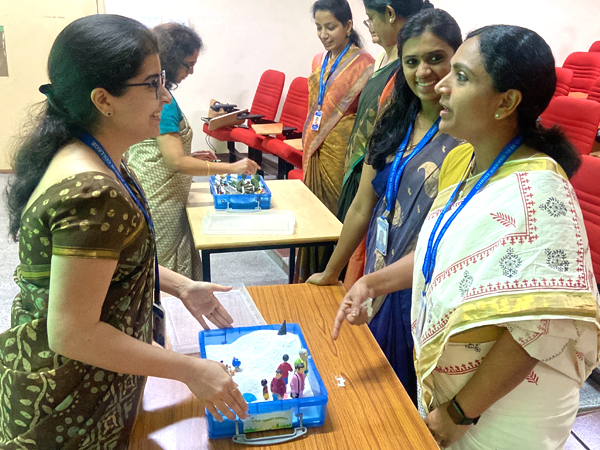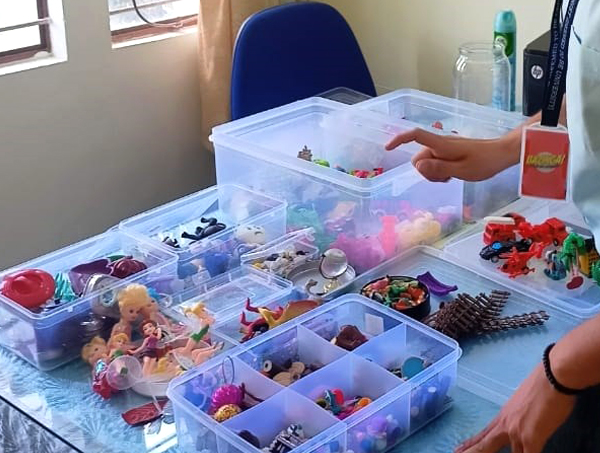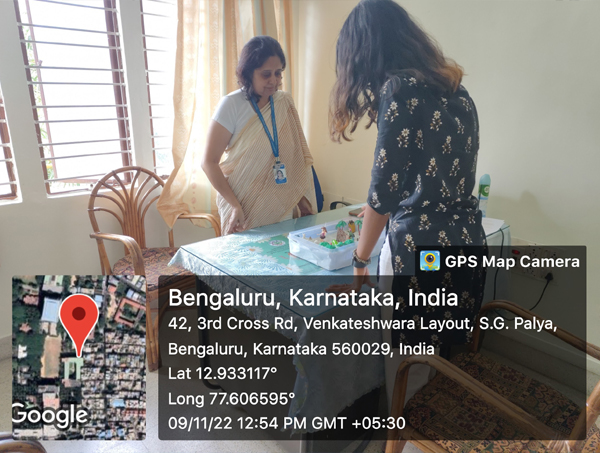
Sand tray therapy is an expressive therapeutic approach that uses figurines or miniatures for the client to express themselves, their world, or aspects of life situations. British child psychiatrist Dr Margaret Lowenfeld is credited to have formulated the sand tray technique and is widely used today for all age groups -- children, adolescents, and adults.
The scenes created by the client in a sand tray is a non-verbal interpretation of the conscious and subconscious aspects of the client’s world and thoughts. This can be rooted in the past, present, or future.
Benefits:

.jpg)
Counsellors in multiple training sessions (during 2022-2023 academic year) with Ms Erin Kinsey Kennedy- faculty member, Dept of Psychology
.jpg)


Sand tray therapy is an expressive therapeutic approach that uses figurines or miniatures for the client to express themselves, their world, or aspects of life situations. British child psychiatrist Dr Margaret Lowenfeld is credited to have formulated the sand tray technique and is widely used today for all age groups -- children, adolescents, and adults.
The scenes created by the client in a sand tray is a non-verbal interpretation of the conscious and subconscious aspects of the client’s world and thoughts. This can be rooted in the past, present, or future.
Benefits:

.jpg)
Counsellors in multiple training sessions (during 2022-2023 academic year) with Ms Erin Kinsey Kennedy- faculty member, Dept of Psychology
.jpg)


Dharmaram College Post, Hosur Road, Bengaluru - 560029, Karnataka, India
Tel: +91 80 4012 9100 / 9600
Fax: +91 80 4012 9000
Email: mail@christuniversity.in
Web: https://www.christuniversity.in
EXCELLENCE AND SERVICE
CHRIST (Deemed to be University) is a nurturing ground for an individual's holistic development to make effective contribution to the society in a dynamic environment.